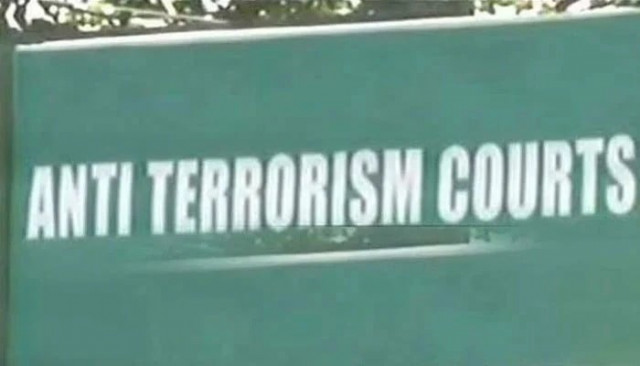Rawalpindi:
The hearing of the May 9-attack case on May 9 took a dramatic turn on Friday when an important prosecution quarters went abroad, defense attorneys Boikotted procedures, and Anti-Terrorism Court (ATC) pressed on by two other witnesses.
Negotiations began with revelations that sub -inspector Tasadduq, considered an important government of government, had gone out of the country with his family after only making a partial statement. Investigators were forced to convene another witness on short notice to keep the trial in motion.
The controversy was elaborated when PTI founder Imran Khan, who had been ordered to appear via video link, was instead connected via WhatsApp. He showed up for just over three minutes before cutting the connection. Both Imran Khan and his legal team condemned the process and called the WhatsApp event constitutionally and Boikotter the trial.
“Either call me personally or conduct a proper prison attempt in everyone’s presence,” Khan allegedly told his lawyers. He argued that video link negotiations deprived him of a fair consultation with his defense team.
Following the boycott, ATC Judge, Amjad Ali Shah, allowed the prosecutor’s request to continue without the defense and registered statements from sub-inspectors Manzoor Shehzad and Saleem Qureshi.
The two witnesses presented 13 USB drives containing 40 video clips allegedly linked to Imran, as well as recordings from CCTV cameras installed on Benazir Bhutto Road, Mall Road, Liaquat Bagh and adjacent areas.
They also submitted clips from national newspapers and videos of PTI leaders, including Khawaja Khokhar, Shehryar Afridi, Umar Tanveer, Sadaqat Abbasi and Sikandar Mirza.
The defense protested earlier in the day and argued that the trial through WhatsApp came short even for a formal video link. “This is not a video link, this is a WhatsApp call – it undermines the right to fair trial guaranteed under Article 10 of the Constitution,” lawyer Faisal Malik told court.
He maintained that without the ability to privately consult their client, the lawyers could not effectively defend him. The prosecutors opposed that the video incident was legal in accordance with amendments to the criminal case and the provisions of the law of anti-terrorism.
They claimed that the transfer of the trial was a executive decision from the Punjab government and could not be challenged in the ATC.
Judge Shah rejected the defense objections and postponed the case until September 23 and called 10 more witnesses for the next hearing. He also rejected a request to summon Imran Khan personally.
The consultation took place under extraordinary security, with 700 police personnel being deployed around the ATC. Roads outside the court were sealed with barbed wire, media cars were limited, and many lawyers were denied entry.



